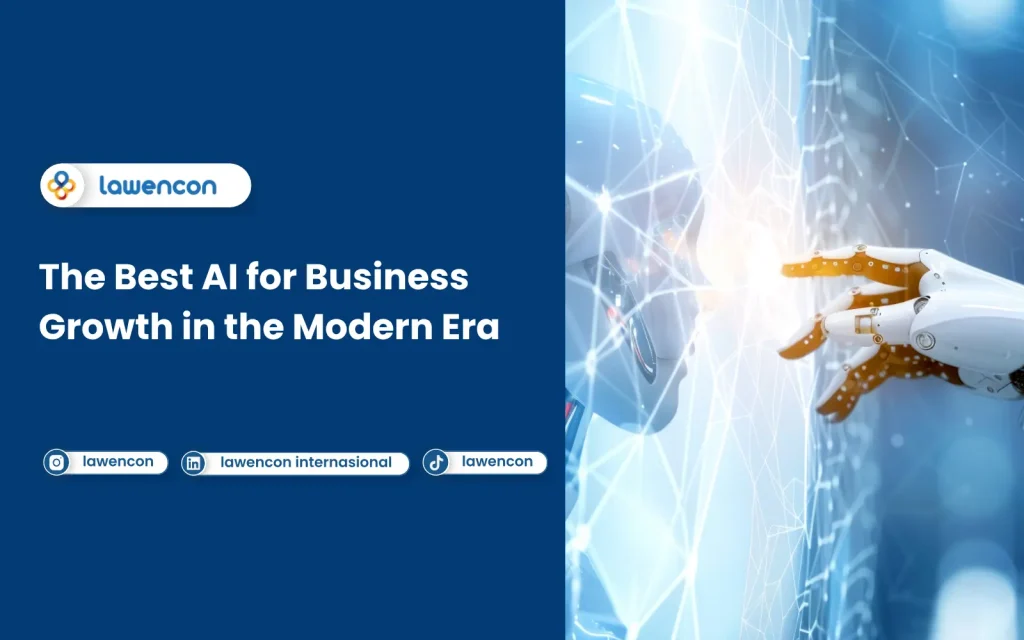Running a business today feels like trying to keep up with a moving train. Markets change quickly, customers expect instant replies, and teams are juggling more responsibilities than ever. In the middle of all that pressure, artificial intelligence has quietly become one of the most dependable tools to help companies stay ahead.
AI today isn’t just about replacing manual tasks. It’s about making work lighter, removing bottlenecks, and helping teams achieve more without burning out. Below are the practical ways AI is transforming business growth, explained in a simple, relatable way.
1. AI Recruitment in HRIS
Finding the right talent has always been a challenge. Screening resumes, comparing qualifications, and arranging interviews take time and energy. AI doesn’t eliminate the role of recruiters, but it definitely makes hiring more efficient.
With AI Recruitment, you can:
- Scans resumes in seconds and highlights the strongest candidates
- Spots hidden strengths or relevant experiences people may miss
- Predicts long-term job fit based on behavior patterns
- Reduces unconscious bias by keeping evaluations consistent
LinovHR, for instance, helps streamline early hiring stages by neatly organizing applicant data and filtering candidates automatically. Instead of digging through inboxes and spreadsheets, recruiters can immediately focus on the people who truly match the job criteria.
2. AI Design Tools for Faster Creative Work
Businesses now create more visual content than ever: ads, social posts, proposals, slides, product shots, and more. Not every team has a dedicated designer, and even creative teams often get overwhelmed.
AI design tools help bridge this gap. With a short prompt, you can:
- Turn ideas into polished visuals
- Resize designs for different platforms
- Generate layout options when you’re out of ideas
- Produce multiple versions quickly
Adobe Express AI has become especially useful. It lets anyone create clean, professional visuals simply by describing what they want. Whether it’s a social post or a campaign banner, it gives you a solid starting point within seconds, cutting down hours of design time.
And for teams preparing reports or pitches, using an AI presentation maker can instantly turn rough ideas into clean, professional slides without needing design expertise.
These tools aren’t here to replace designers. They just make the repetitive parts easier and help teams move faster.
3. AI Customer Support & Virtual Assistants
People expect fast, accurate customer support. Unfortunately, support teams can’t always respond immediately, especially during peak hours or after working hours.
This is where AI assistants help. When implemented correctly, they don’t feel robotic or cold. Instead, they act as a friendly first touchpoint that helps clear simple requests before sending more complex issues to a real person.
Modern AI chatbots can:
- Respond instantly to common questions
- Help customers track orders
- Troubleshoot simple problems
- Pull answers from your knowledge base
- Hand off the conversation to a human agent smoothly
Tools like Intercom’s AI chatbot act like an always-available helper. It greets visitors, identifies what they need, provides quick guidance, and connects them to the right person if necessary.
The benefit? Faster service, less stress for your support team, and happier customers overall.
And these benefits aren’t limited to customer service. HR systems are starting to adopt the same approach. LinovHR, for instance, is developing an AI chatbot that allows HR teams and employees to quickly find features, data, or information inside the HRIS simply by asking.
Instead of navigating menus or searching through multiple modules, users can get what they need in seconds through natural conversation.
4. AI Sales Tools & Lead Prioritization
Sales teams often waste time chasing leads that don’t go anywhere. AI cleans up that chaos by showing which prospects are actually ready to buy.
Using customer behavior, past interactions, and deal history, AI can:
- Score leads based on how likely they are to convert
- Suggest the next best action
- Summarize long email chains
- Identify which sales strategies work best
Tools like Salesforce Einstein and HubSpot’s AI features quietly analyze interactions and surface insights that reps might miss. With clearer signals, sales teams can focus on the opportunities that actually matter instead of spreading themselves too thin.
5. AI for Marketing & Content Personalization
Marketing evolves constantly. Platforms change, customer preferences shift, and brands have to create more content in less time. AI helps keep marketers ahead of the curve.
Here’s what it can do:
- Suggest content ideas
- Draft articles or captions you can refine
- Personalize website or email content
- Run continuous A/B tests
- Adjust ad targeting automatically
Tools like Jasper, HubSpot, or Adobe Express AI help marketers turn rough ideas into polished content quickly. Meanwhile, personalization tools tailor each visitor’s experience so people see messages that fit their behavior and interests.
Instead of guessing what might work, marketers can rely on data-backed insights.
6. AI Business Intelligence & Analytics
Every company collects data. Not every company knows what to do with it.
AI turns raw data into insights that are easy to understand and act on.
It can:
- Detect unusual trends early
- Predict upcoming sales performance
- Reveal customer behavior patterns
- Turn complex numbers into simple dashboards
Platforms like Tableau with AI insights, Google Analytics predictive features, and Power BI’s smart analysis help leaders see patterns long before they’re obvious. With this clarity, decision-making becomes faster and more confident.
7. AI Workflow & Operations Automation
Many teams still spend hours each week on repetitive tasks—manual data entry, sorting documents, sending updates, generating reports. AI helps take over these small but time-consuming routines.
Examples include:
- Auto-processing invoices
- Categorizing support tickets
- Generating weekly or monthly reports
- Sending reminders and follow-ups
- Predicting inventory needs
Tools like Zapier AI, Notion AI, or Monday.com’s automation features can connect systems, move information, and trigger actions automatically. Employees can then focus on meaningful work instead of repetitive steps.
Even with all the advantages AI brings, businesses still need people who understand how to apply these tools wisely. Strong systems only reach their full potential when handled by skilled talent who can interpret data, optimize workflows, and make thoughtful decisions.
If your company is ready to scale with AI but needs the right team to support that growth, Lawencon can help you recruit the talent you need and manage your workforce more seamlessly so your AI initiatives run smoothly from day one. Contact us here.






